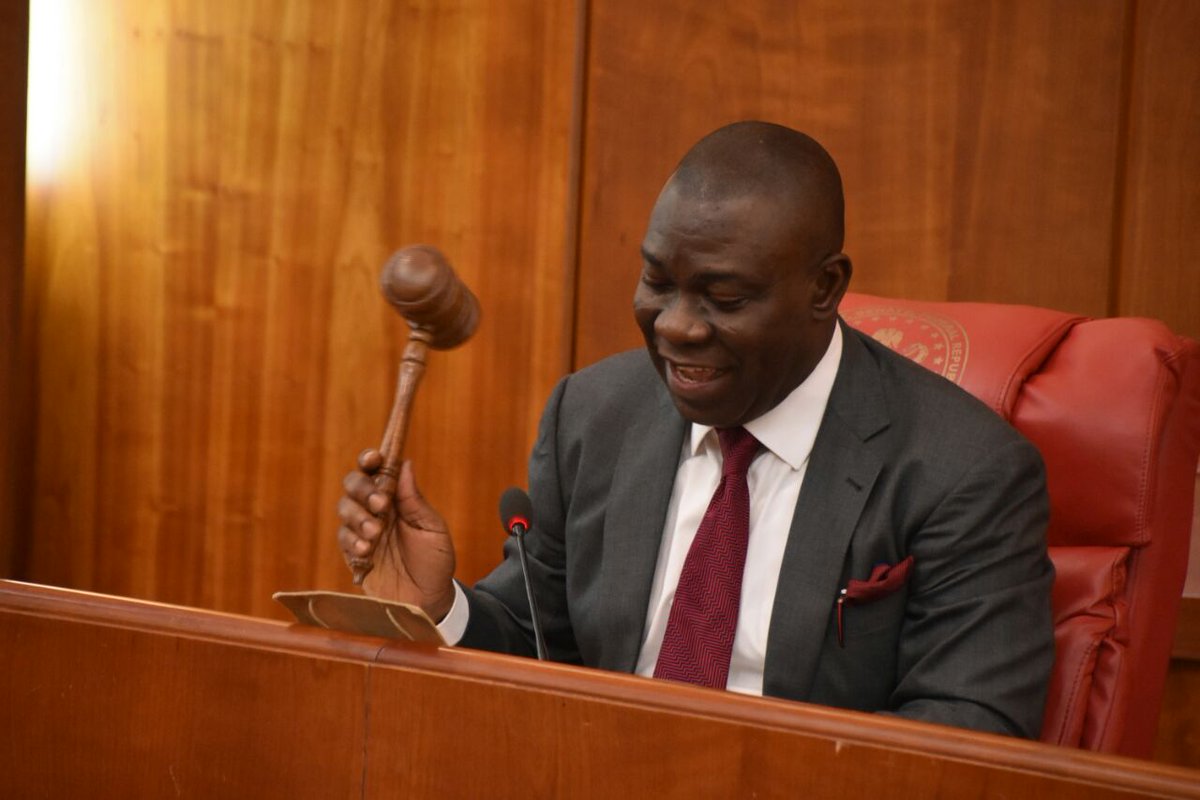
• Moves to close fiscal, monetary policy gaps
• Signs $1.1m capacity project pact with ACBF
The Senate is considering financial autonomy for state assemblies and local councils in the ongoing Constitution amendment exercise.Deputy Senate President and Chairman of the Senate Committee on Constitution Review, Senator Ike Ekweremadu, said this yesterday at the consultative forum for building consensus among stakeholders on local government autonomy organised by the Partnership to Engage and Learn (PERL) in Abuja.
He described financial autonomy as “the most important constitutional empowerment required by State Houses of Assembly for effective leadership in the interest of democracy and development.”
Ekweremadu emphasised that the autonomy of local councils was tied to the independence of the state assemblies and understanding of the governors.He said: “Section 7 of the 1999 Constitution (as amended) empowers the states, through their houses of assembly, to make laws establishing local government councils, their structure, composition, finance, and functions. Therefore, the independence and efficiency of the leadership of state assemblies are key to the just and efficient exercise of these functions.”
He, however, regretted that undue executive and political party interferences in some states bring debilitating influences to bear on the leadership recruitment process of the legislature.
He noted that imposition of leadership on any state assembly would render it “ineffectual, pliable, and sometimes, a lame duck that is ever willing to do the master’s biddings.”
He called on the state assemblies to stand with Nigerians in the effort to create viable and efficient Local Government systems in the country.Responding, the Vice Chairman of the Conference of Speakers of State Legislatures of Nigeria and Speaker of the Enugu State House of Assembly, Uchenna Ubosi, said that the Conference of Speakers had resolved to support the autonomy for local councils and financial independence of state assemblies.
Meanwhile, the Senate yesterday met with stakeholders in the economic sector to review existing strategies.The meeting was attended by the Finance Minister, Kemi Adeosun, Central Bank Governor, Godwin Emefiele, and chief executives of commercial banks.
It was learnt that the issue of how to close gaps between and monetary and fiscal policies by ensuring that they compliment each other dominated discussion at the meeting.
Chairman of the Senate Committee on Banking, Insurance and Other Financial Institutions, Rafiu Ibrahim, confirmed that the problems of increasing interest rates were also deliberated.
In the meantime, the National Assembly and the African Capacity Building Foundation (ACBF) have signed a $1.1million project grant agreement for the National Institute of Legislative Studies (NILS) to improve the legislative capacity of lawmakers and their staff in the West African sub-region.
Senate President and Chairman of the NILS Governing Council, Abubakar Bukola Saraki, who signed yesterday in Abuja on behalf of the National Assembly, said that the NILS-CAP II which targets capacity development in ECOWAS countries and the ECOWAS parliament, would fast-track the implementation of intra-regional trade among ECOWAS member states and effective financial oversight in the sub-region.
Also, the People’s Right to Life Development Foundation (PELDEF) wants the 10 principal officers of the Senate banned from entering the United States following alleged abuse of rule of law and rights of democratic representation.
The United Nations’ Universal Periodic Review (UPR) group also accused the Senate of operating double standard and abuse of rule of law, which is capable of truncating the country’s democracy.
In a letter written to the Congressional Black Caucus of the United States of America Congress and signed by its Chairman Board of Trustees, Comrade Ifot Nathaniel, the body decried the falling standard of the Senate with respect to administration of judicial process as the highest law making body in the country.
The group, citing a case of alleged injustice bordering on failure to inaugurate a Senator-elect, Bassey Etim, wondered why the Senate President, Bukola Saraki, who took oath of allegiance to uphold the Nigerian Constitution and do justice to all manner of persons, would violate same law in alleged discrimination against Etim despite a subsisting court order.



